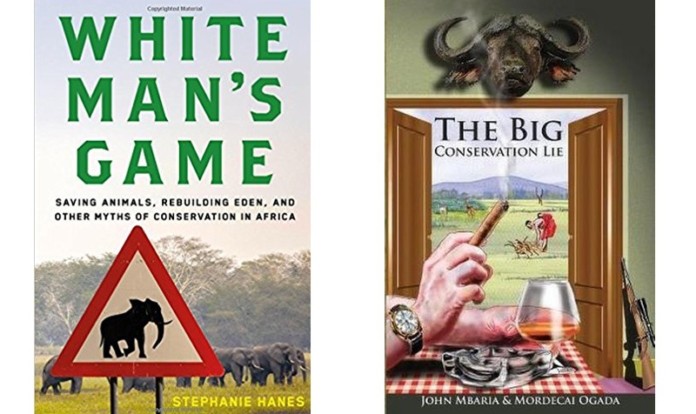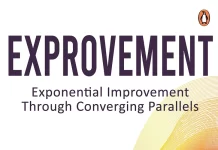Two recent books show how well-meaning Western donors and the industry they helped create have done severe damage to African livelihoods and to their ecosystem in the last few decades. The white man’s burden, meaning intention to uplift colored people, has indeed become Africa’s nightmare.
By Benedict Paramanand
Stephanie Hanes book White Man’s Game: Saving Animals, Rebuilding Eden, and Other Myths of Conservation in Africa, published in July 2017 and John Mbaria’s The Conservation Lie, published in December 2016, have one underlying thread – how native African knowledge and deep insights have been neglected while drawing up big conservation projects. These projects, in the form of wildlife sanctuaries, parks and safaris, have marginalized local people and have benefited businesses that run them in a big way.
The boards operating these ‘conservation’ projects are glaringly made of white men. The tragedy is they are able to influence policy and the African governments have been playing ball.
“Beneath the uplifting stories we tell ourselves about helping Africans, she shows, often lies a dramatic misunderstanding of what the locals actually need and want,” Quote from a reviewer.
Hanes urges donors and ‘intellectuals’ to listen when rural Africans speak of their Spirits before dismissing them as witchcraft or mumbo jumbo. She implores people to see the Spirit stories as “the cumulative moral tradition of the tribe, they can be read as the personality of the region in terms of its environment or history. The speaker’s claim about the Spirit’s wishes can be read as a statement of the tribe’s self-interest.”
Some hard truths
- Why are local communities actually getting hungrier, sicker, and poorer even when the wildlife parks seem to be thriving
- Why did efforts to bring back wildlife have become far more difficult than expected in most of the parks
The Big Conservation Lie by John Mbaria & Mordecai Ogada takes the reader through Kenya’s murky conservation industry. It’s a “call to indigenous Africans to claim their place at the table where the management of their natural resources is being discussed and invites well-meaning donors to look beyond the romantic images and detect the possible role of their money in the disenfranchisement of a people. Africans must take a stand against western-driven thinking.”
These books are aimed at evoking the conscience of all the players – particularly the donors and the African policy makers – to the harsh ground realities so that they could make course correction. However, the pressure for change could come only when people who throng these parks are sensitized to the harsh realities behind the few majestic animals they go to see.
What Africa Can Learn from India
Mordecai Ogada, contributor to the book The Big Conservation Lie, spoke at the Roundglass Samsara 2017, a sustainability festival, organized by Ricky Kej, winner of Grammy at the 57th Annual Grammy Awards, recently in Bengaluru. Here are some highlights
India’s achievements on wildlife conservation in the context of human-animal conflict are remarkable. Efforts to save elephants in India are completely run by Indians, unlike in Africa which is run by white men. If you Google ‘conservation in Africa’ you rarely see a black face. You own your elephants. We don’t.
Wildlife conservation in Africa is aimed at separating wildlife from African people.
There is a strong racial divide in wildlife conservation in Kenya and most other African nations. Wildlife conservation in Africa cannot succeed if it is not socially sustainable, if it is not equitable.
Tourism, instead of being the byproduct of conservation, has become the reason for conservation – this is unfortunate. Tourism is a double-edged sword. Tourism has resulted in disenfranchisement of local people.
Natural resources are our natural heritage – it is intrinsic. The value of Mount Kenya, for example, is spiritual. We cannot put a price on everything.
Sharing of lessons between Kenya and India will be more effective than sharing with the United States. India and Africa have more things in common than we realize.
Conservation in Africa is like an organized crime.
Sustainability in the West is about how much water or electricity one saves. They are material sustainability. For India and Africa cultural, social and environmental sustainability matter as well. Only material sustainability will not succeed.
Listen to Mordecai Ogada’s 30 minute talk at Roundglass Samsara 2017
https://www.dropbox.com/s/9mgjxcpxdcmrc8x/Mordecai%20Ogada.wav?dl=0










